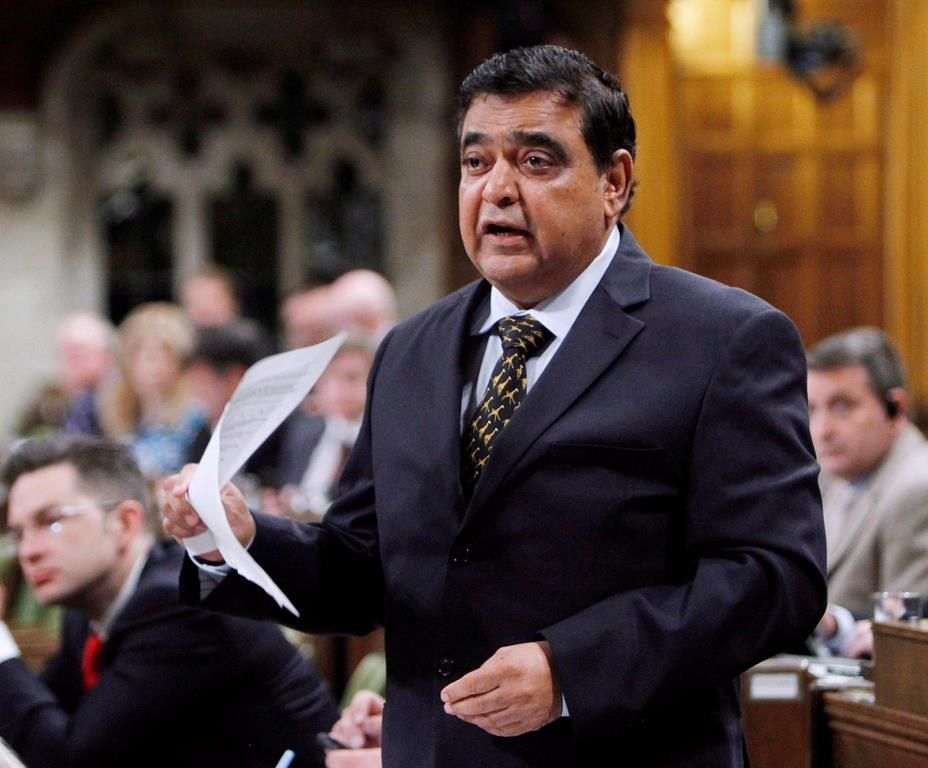OTTAWA — For a brief moment in history, Deepak Obhrai will be the man at the helm of the Conservative party caucus.
The longtime Calgary MP happens to be the longest, continuously serving member of the caucus, and as such gets to run the party's first post-election, post-Stephen Harper meeting next week.
And Wednesday's meeting will likely be dramatic — MPs are expected to vote on a host of important things, including who will be their interim leader and their caucus chair, and whether they will endow themselves with more powers.
It's all the result of changes made to the Parliament of Canada Act, put forward in a private member's bill by MP Michael Chong and passed into law in June. The new provisions call for caucus to vote on a series of key matters, presided over by the caucus member "with the longest period of unbroken service."
That happens to be Obhrai, elected in 1997 along with Jason Kenney and Gerry Ritz, but whose victory happened to be officially recorded first. The 65-year-old — referred to deferentially as "mzee," or elder, in his native Tanzania — just learned about his role this week.
"The irony is that I was the one who was opposing (Chong's) Reform Act, now I've got to follow it," said Obhrai, calling it an honour to have the role of presiding over the first meeting.
"Whatever is laid out, we'll follow the process and as things unfold, which could be very interesting or not, I'll have to deal with them."
Chong said the changes contained in his bill were specifically designed to remove some of the confusion that can plague parties when a leader steps down after an electoral defeat.
The new changes require the Liberal, Conservative and NDP caucuses to vote on four main issues:
— Whether or not to give MPs the power to eject and reinstate colleagues;
— Whether to give MPs the power to spark leadership reviews after 20 per cent of MPs formally request one;
— Whether MPs should have the power to elect caucus chairpeople;
— Whether they should have the power to hold votes for interim leader.
"Often in Canada, when we've had questions of leadership, there's a great deal of instability about the process because there's a great deal of instability about what exactly the rules were," said Chong.
"Now with the Reform Act, we have clear model rules to follow."
Obhrai said he's well aware of some of the debate that continues to swirl around the law, and expects it will come up at the meeting.
The reforms specified that only elected members of caucus be part of these votes.
That has created a discrepancy with the Conservative party constitution, which says the "parliamentary caucus shall appoint" the interim leader.
With no MPs elected from Atlantic Canada, that could mean the interim leader is voted in without any input from that region. Newfoundland Sen. David Wells has already voiced his displeasure with the prospect.
Meanwhile, party president John Walsh pointedly used the words "Commons caucus" when referring to the vote for interim leader in a recent statement.
So far, MPs Diane Finley, Rob Nicholson, Candice Bergen and Erin O'Toole have come forward as candidates for the job.
When the Conservative party was formed from a merger of the Progressive Conservative and Canadian Alliance parties in 2004, interim leaders John Lynch Staunton and Grant Hill were selected by the two existing party leaders.
"The candidates who have declared for the interim leadership are acting in accordance with the rules; in other words, they're assuming they're going to be seeking an elected position," said Chong.
"In some ways the cultural shift has already begun in House of Commons caucuses, and that's encouraging."
Jennifer Ditchburn, The Canadian Press



Comments